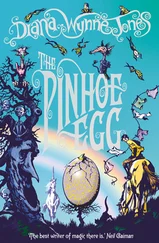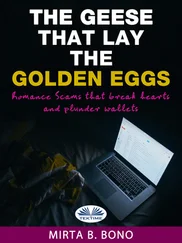‘The daughters still live there,’ he said after a hesitation so short most people would not have noticed it. He turned and switched on the coffee grinder next to the coffee machine, though the plastic container was well more than half full.
Brunetti took a sip of his wine, waited out the noise, and when it stopped, asked for a tuna and artichoke tramezzino . It came wrapped in a paper napkin and on a plate.
‘Ana Cavanella used to live there, didn’t she?’ Brunetti asked and took a bite of the sandwich. Too much mayonnaise, as was increasingly the case all over the city, he didn’t know why.
‘Is this about her son?’ the barman asked.
‘Yes,’ Brunetti answered, seeing no reason to lie.
‘What happened?’
‘He took sleeping pills, vomited, and choked to death,’ Brunetti said.
The man’s hand rose protectively to his throat; he left it there while he said, ‘Oh, the poor woman.’
‘You knew her?’ Brunetti asked quite naturally, as though they were old friends and the subject had come up in conversation.
‘Years ago,’ the man said. ‘Must be forty. Even more.’ Then, ‘How old was he?’
‘In his forties,’ Brunetti answered and took another sip of his wine. Then, very casually, ‘She’s still an attractive woman. Must have had him when she was young.’
The man shot him a suspicious look; Brunetti countered it by taking another bite of his sandwich and nodding his appreciation. ‘I spoke to her three days ago, just after he died. Terrible, terrible.’
The man’s curiosity got the better of him. ‘How’d that happen? I always thought the boy was retarded. You think she’d be careful with pills and things like that.’
Brunetti sighed and said, ‘I don’t think we can be careful all the time.’
Two men came into the bar and asked for coffees. The barman served them and was quickly back in front of Brunetti. He picked up a glass and wiped at it with a towel.
‘What was it people called Lembo?’ Brunetti asked, as if the name were dangling just at the edge of his memory, in need only of some help from a person with a better one. ‘The Duke of Something?’
‘King,’ the barman said, pleased to have found it first. ‘The King of Copper.’
Brunetti smiled in approval. ‘Of course. Thanks.’ Then, the way people did, he repeated the name, ‘The King of Copper’, shaking his head at the outlandishness of it. He finished his tramezzino and did not order another one because he did not want the barman to move away.
‘My father,’ Brunetti lied, ‘used to talk about him.’ Then, as if allowing memory to seep back, he continued, ‘He had a boat – my father – and he would take him . . .’
He broke off and allowed a look of great confusion to cross his face. ‘I don’t remember whether it was fishing or to Piazzale Roma.’ He shook his head: age takes away so many memories. ‘He used to talk about his daughters. One of them was about my age, and he’d tell me I should be more like her; quieter, more obedient.’
‘That must have been Lucrezia,’ the barman said.
Delight flashed from Brunetti’s eyes. ‘Yes, of course. That was her name.’ He caught the barman’s eyes in his glance and said, ‘I never met her, but I have to confess there were times when I wanted to go on the boat with my father and throw her off.’ He chuckled, looked down at his feet, and shook his head.
‘Why?’
With a smile that displayed his pleasure that this man should be curious about his family memories, Brunetti said, ‘Because my father talked about her so much. Said she was like this and like that: all the things I wasn’t.’
‘Is your father still alive?’ the barman surprised him by asking.
‘No. Why?’
‘Because, if he were, you could tell him that he was wrong.’
Confused smile. ‘I’m afraid I don’t understand.’
‘You’re a respectable man. A policeman, aren’t you?’ he asked.
‘Yes to the policeman,’ Brunetti said. ‘I don’t know about the respectable.’
‘Well, Lucrezia isn’t.’
Once more Brunetti looked confused and, he attempted, faintly concerned. ‘What happened?’
‘Men. Alcohol. Trouble with her children. Divorce.’
‘I’m sorry to hear that,’ Brunetti said, speaking as though he’d just had bad news about an old friend. Then, deciding to risk it, ‘I’m glad my father never had to hear this.’
‘No one likes to hear bad things about people they like, do they?’ the barman asked.
‘No, not at all,’ Brunetti said, shaking his head and deciding to meet cliché with cliché: ‘But life’s a funny thing: it tells us things we don’t want to hear.’ He shook his head and then, deciding it would be best not to ask more questions, he reached into his pocket and took out some change. He asked how much he owed, left more than that on the counter, thanked the man for his time, and left the bar.
Foa was on the deck, bent over a copy of La Gazzetta dello Sport , giving the impression that he wanted to eat it, rather than read it. He heard Brunetti’s footsteps and reached a hand across the open space to help him on to the boat.
‘Latest scandal?’ Brunetti asked, pointing to the screaming headlines.
Foa folded the paper closed and stuffed it under
the control panel. ‘It’s strange, Commissario,’ he said as he moved past Brunetti to unmoor the boat. ‘We all know it’s fake, that the games are all fixed, but you’d think they’d be more clever about keeping what they’re doing secret.’ He reached down and slapped the paper with the back of his fingers. ‘They’re blabbing about it on the phone all the time, sending emails back and forth, talking about how much they want to be paid to lose the game, giving the names of the players who will help.’ He turned the key, revved the engine, and pulled away from the riva , heading for the Grand Canal.
They turned right, back towards the Questura. Foa seemed to have exhausted his comments on soccer and sportsmanship, but Brunetti wondered if he might still be interested in blabbing.
‘That palazzo belongs to a family called Lembo,’ he began. ‘You ever hear of them?’
A taxi was making straight for them, the driver busy on his telefonino . Keeping one hand on the tiller, Foa gave a sharp blast of their siren. The driver looked up and saw them, dropped his telefonino and pulled his boat skittering to the right. ‘Stupid bastard,’ Foa said as the two boats passed.
Then, taxi forgotten, he said, ‘Yes.’
‘Much?’
‘Enough. Give me a day, sir, and I’ll know a lot more.’ He turned and smiled at Brunetti, unable to disguise his pleasure at being treated like a real policeman.
Brunetti was content to stand and watch the buildings and the light, entranced, as he so often was, by the casual, unending beauty of it. Stone, sky, gold, marble, space, proportion, chaos, disorder, glory.
They glided to the dock. Foa switched off the engine and tossed the mooring rope effortlessly over the stanchion, jumped to the dock and held out a hand to Brunetti. It was the second time that day the younger man had offered him a hand: Brunetti put his lightly on the outstretched arm and jumped to the riva .
He decided it was time to throw Signorina Elettra some fresh meat and went to her office. She was not at her desk, but the door to Patta’s office was open and he could hear voices, one of them hers, from inside. He could have stood by the door to hear what they were saying, but the idea displeased him: next, he’d be scrolling through her computer files, using the skills she had taught him.
Instead he went to the window and looked down at the waters of the canal; he thought about the man in the bar and what he had told him. ‘Daughters.’ After some time, he heard footsteps and then the closing of the door to Patta’s office. Signorina Elettra came across the room and gave him a smile. She sat behind her computer and said, without asking him what he had found in Dorsoduro, ‘I am a saint.’
Читать дальше












